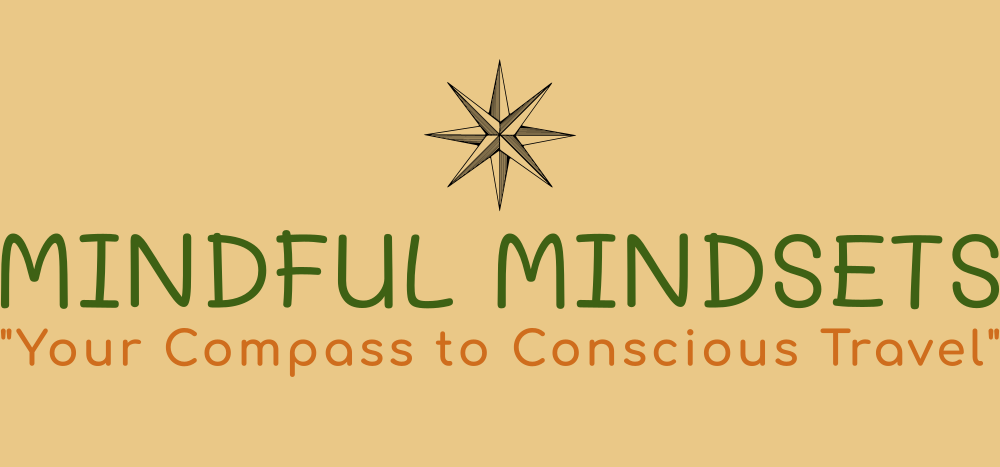While I may be somewhat partial, I genuinely believe that one of the most advantageous experiences a person in sales can have is to travel – preferably solo. This viewpoint is largely based on my own, somewhat unorthodox, career trajectory. You see, I never initially intended to get into sales; it was something that simply unfolded as my life evolved, particularly as I started to travel.
After finishing studying Economics and Business at University, I had no idea what I wanted to do with my life other than live and work on as many continents as I could in my 20s. So I did what any normal person would do and embarked on a journey to teach English in a small rural school in Thailand 😉
You may now be asking, “What does teaching English in Thailand have to do with sales or launching a sales career?” Indeed, on a broader level, being a teacher offers a robust foundation in the essential elements of sales. These include honing strong communication skills, fostering relationships, recognizing the significance of patience and persistence, understanding needs, problem-solving, and enhancing presentation skills
After my teaching stint in Thailand, I secured a work visa in Australia. Even then, I was still unsure about my career path. Upon moving to Australia, I discovered a company in Melbourne that sold paintings door-to-door on a commission-only basis. The company provided free accommodation, so I took the plunge. I recall arriving in Melbourne and, that very night, shadowing a seasoned rep to learn the nuances of selling paintings door-to-door. The next day, I was on my own in the market, fully immersing myself in the world of sales.
The first day was rewarding – I made about $250. However, as one might expect in the highly competitive world of door-to-door sales, the following day saw me working for six hours without earning a dime. It was a wake-up call that, while the sales game was intriguing, I needed something more stable – ideally with a basic salary plus commission structure.
So, I turned to the internet and found a company hiring direct sales representatives for a gas and electricity provider. This job was a game-changer. It was during my tenure here in Australia that I fully launched into my sales career. The experience toughened me up, taught me how to interact with people from all walks of life, and how to open, pitch, and close a sale within a short time frame. More importantly, it taught me how to gain trust and credibility while delivering value.
After about three years abroad, I returned to the United States, armed with a newfound passion for sales. I found myself at an unexpected convergence, being at the right place, at the right time, in front of the right people. The investors of a startup saw potential in me and decided to take a chance on me and I was hired as a director of sales for their company.
Embracing what I call a “guerrilla sales tactic,” I attacked the market head-on. Fortunately, my previous experience of pitching door-to-door proved invaluable, and I had no qualms about walking into businesses and presenting an exciting product. Over the course of three years, we grew that business exponentially into a multi-million dollar enterprise. We built a sales team, launched into several key markets, and established ourselves as the “Windex” of our industry.
Then, COVID hit, and I decided to pivot towards technology, considering the longevity of my career. I turned to a well-known, publicly-traded company, recognizing that I needed to take a few steps back to launch a sales career in a completely new industry. It was a tough industry to break into, but I managed to work there for about a year and a half, receiving a significant promotion within 12 months.
Unfortunately, the economy was shaky in 2022, and the subset of the sales organization that I was promoted into wasn’t as profitable as the company’s shareholders would have liked. At a moment’s notice, they dissolved our part of the organization, and I was left jobless. However, I saw this setback as a blessing in disguise and decided to travel and accomplish some significant personal goals in the ensuing months.
So, there you have it, my sales background. At least now you know I bring some credibility to the table. Don’t get me wrong, I’m still in the minor leagues of sales compared to some of the people I’ve worked with and learned from. I know I have a lot to learn and will continue to fall on my face, but it’s all worth it – because I have an innate interest in the game of sales because, in my opinion, if you do it right, it doesn’t even feel like a job.
When you strip everything down to its core, all sales is, in my perspective, is forming bonds and aligning value. It’s a key aspect of sales and why I enjoy it so much because it’s exactly what I do when I travel. Therefore, in this transition, I want to talk about why solo travel, or just travel in general, has been fundamental to my sales growth, and not just in helping launch my sales career.
Empathy and Connection
- Travel teaches you empathy and the ability to connect with people from all walks of life. Picture yourself stepping off a plane into a country where everything is new – the language, the customs, the culture. Suddenly, you’re an outsider looking in, making your way through an unfamiliar world. Yet, amidst this strangeness, you soon realize an underlying commonality – at our core, we are all human. Regardless of differing religions, income levels, or traditions, we all share fundamental needs: love, community, shelter, and purpose.
- This revelation is not only profound but also crucial in the realm of sales, where the heart of the game is understanding your customer. The goal isn’t merely to sell a product or service but to truly comprehend the unique needs and desires of each customer.
- Then, by aligning those needs with the specific value your product or service provides, you create a meaningful connection. Much like bridging cultural gaps during travel, successful sales hinge on forging a link between customer desires and the value proposition. This ability to empathize and build relationships, honed through travel, is a powerful asset in a salesperson’s toolkit.
Adaptability and Resilience
- Travel serves as an effective teacher, pushing you beyond the bounds of your comfort zone. Much like the fluctuating dynamics of sales, travel too is a ride of highs and lows. It’s not all sunsets over the Eiffel Tower or the thrill of closing a major deal. Sometimes, it’s about enduring a grueling bus ride, going without food for 20 hours, getting utterly lost in an unfamiliar city, and managing to find your way back home without any grasp of the local language.
- This mirrors the realities of the sales world, where the journey is not always smooth. The sales cycle is replete with peaks and troughs. Not all deals come to fruition effortlessly. Indeed, a significant number demand substantial time, effort, and perseverance, particularly in a competitive industry or market. You may face misalignments and miscommunications, last-minute objections that throw a wrench into what seemed to be a surefire deal.
- Yet, it’s these very challenges that compel you to sharpen your problem-solving skills, navigate intricate scenarios, and structure a deal that ensures mutual benefit. Much like deciphering a foreign city’s map, you learn to decode the complexities of a deal and steer it towards a successful conclusion. Both travel and sales teach you resilience and adaptability, essential skills in an ever-changing world.
Curiosity and Thoughtful Questions
- Travel inherently fosters a sense of curiosity. This curiosity, like a compass, guides you as you explore unfamiliar terrains, leading you to ask questions and learn more about the world around you. This sense of inquisitiveness is not only crucial in exploring new geographies, but it’s also vital in sales.
- In the realm of sales, asking the right questions can illuminate the path to value alignment between your solution and the customer’s needs. This is much like the way we navigate new environments while traveling. We ask locals for directions, delve into the history of the place, and try to understand cultural nuances. All of this information aids us in maneuvering through unfamiliar territory and enriches our overall travel experience.
- For instance, in a discovery or pitch meeting, asking thoughtful, targeted questions helps to qualify or disqualify prospects, just as careful inquiries can guide you to the most authentic local cuisine or the most serene hidden spots during your travels. The right questions can prompt answers that help you forecast the trajectory of the sales cycle, much like asking about local customs can help you anticipate and respect social norms during your travels.
- Asking the right questions signals to your prospects, leads, or customers that you genuinely care about their challenges and are intent on helping them solve or prevent a problem. This is akin to showing respect and interest in the local culture while traveling, which can lead to richer, more meaningful connections and experiences.
- Just as travel broadens your horizons and induces a sense of curiosity about the world, the same curiosity can elevate your sales approach, allowing you to uncover customer needs and align your offerings to them more effectively.
Building Meaningful Relationships
- Travel opens doors to form immediate and long-lasting relationships. Reflecting on my own experiences, I cannot count the number of times I’ve struck up a conversation with a stranger during my travels and found myself immersed in a profound interaction within mere minutes. There’s a certain magic in meeting someone you didn’t know existed a moment ago, in a completely different part of the world, with diverse beliefs and upbringings.
- Imagine sitting across from a local artisan in a bustling Middle Eastern market, understanding their craft and sharing stories. Or perhaps you’re exchanging life experiences with a fellow traveler on a train journey through the heart of Europe. These interactions, enriched by the absence of preconceived judgments, lay the groundwork for meaningful conversations and connections that transcend cultural boundaries.
- This principle finds a parallel in sales where initiating conversations with prospects, leads, or customers is akin to striking up a chat with a stranger in a foreign land. It’s vital to approach these interactions with an open mind, free of judgment, and with genuine interest. Doing so allows you to build a strong rapport and a meaningful relationship from the get-go.
- Think about it like this: every sales call is an opportunity to make your interaction memorable, to leave a lasting impression, much like the unforgettable encounters during your travels. It’s about understanding the other party, resonating with their needs and challenges, and making them feel valued. Just as every enriching travel interaction leaves a lasting impression on you, every meaningful sales conversation should do the same for your customer or lead.
Navigating and Innovating in Markets
- Traveling indeed compels you to step outside your comfort zone, often resulting in what is commonly referred to as culture shock. This culture shock, while initially disconcerting, is an acknowledgment of the diverse ways in which people live and think, remarkably different from what you may be accustomed to. This realization often prompts an evolution in your perspective, a recalibration of your worldview.
- Consider an instance where you’re trying to navigate the bustling streets of a city like Bangkok or Mumbai for the first time, deciphering signs in a language you don’t understand, and adapting to customs that are new to you. Such experiences require a shift in your mindset, a sort of intellectual agility that fosters innovation and creativity.
- Drawing a parallel to the world of sales, this mirrors the process of breaking into a new territory or penetrating an emerging market. Just as you adapt to a new culture during your travels, you must also adapt your sales strategies to align with the unique needs of a new market. This might involve understanding new consumer behavior patterns, adjusting to different purchasing power, or navigating through unfamiliar regulatory landscapes.
- In essence, both scenarios demand innovation and adaptability. They require you to test new ideas, to pivot from the usual, and to develop an empathetic understanding of the needs and preferences of those you’re interacting with, be it in a new city or a new market. This ability to adapt ensures that your travel experience or your product or service fits seamlessly into the new context, creating a harmonious alignment between your offerings and the needs of the market.
Authenticity: The Key to Successful Interactions
- Traveling encourages you to embrace and express your authentic self. As you navigate different cultures, landscapes, and experiences, you come face-to-face with various challenges that prompt you to respond genuinely, revealing your true self. It’s an opportunity to break free from societal expectations and to act in a way that resonates with your core values and beliefs.
- This authenticity finds its mirror in the world of sales. In the professional sphere, the importance of being genuine can sometimes be overshadowed by the pressures of targets and competitiveness. However, authenticity remains a cornerstone of successful sales. Nobody enjoys feeling as though they are being manipulated into a sale, but everyone appreciates finding a solution to their needs or desires.
- Think of it this way: imagine you’re wandering through a Moroccan bazaar. You’re more likely to purchase from a vendor who genuinely guides you, understanding your preferences and budget, rather than one who persistently pushes their wares without consideration for your needs.
- In a competitive marketplace, the ability to build strong, genuine relationships with prospects and customers is paramount. Authenticity is the key to unlocking this rapport. It’s about discarding the two-faced sales tactics that cast you as the stereotypical, pushy salesperson. Instead, approach your prospects with sincerity, showing genuine interest in their needs and offering solutions that truly benefit them.
- In the end, being authentic not only garners trust and cultivates lasting relationships but also differentiates you in a crowded market. Just as authenticity enhances your travel experiences, it propels your success in sales, proving to be a valuable companion on both journeys.
In conclusion, my personal journey through the world of travel and sales has revealed the profound interconnectedness between these two domains. From honing communication and presentation skills, building resilient relationships, nurturing empathy, and fostering a sense of curiosity, to exploring new territories and expressing authenticity, travel and sales undeniably mirror each other in countless ways.
Travel, much like sales, is a journey marked by highs and lows, unexpected turns, and valuable lessons. It pushes us to step out of our comfort zone, to see the world from different perspectives, and to connect with people on a deeper level. It is a classroom that teaches us invaluable skills and insights that are directly applicable to the sales realm.
Meanwhile, sales, much like travel, is a pursuit that requires adaptability, empathy, and a keen sense of curiosity. It demands us to understand and align with the needs of our customers, to navigate through intricate deals, and to remain authentic in our approach.
Whether it’s navigating a bustling foreign city or a complex sales deal, the journey is filled with unexpected twists and turns that often lead to the most rewarding outcomes. Therefore, I firmly advocate for travel as a significant catalyst for growth, not just personally, but also professionally in the realm of sales.
Just as I have drawn upon my travel experiences to inform my sales career, I urge my fellow salespeople to consider the immense benefits that travel can bring to their professional life. The insights gained from diverse cultures, languages, and experiences can serve as powerful tools in your sales toolkit.
Remember, sales is not about pushing a product or service onto the customer. It’s about understanding their unique needs and aligning the value your offering provides. It’s about building genuine relationships, navigating challenges, and delivering real value – skills that travel can significantly enhance.









